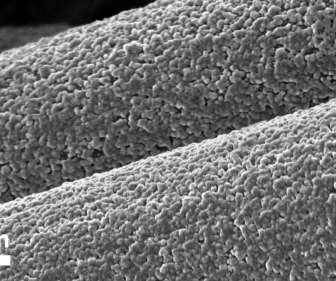Cornell team develops aluminum-anode batteries with up to 10,000 cycles
Green Car Congress
APRIL 6, 2021
Friend Family Distinguished Professor of Engineering, have been exploring the use of low-cost materials to create rechargeable batteries that will make energy storage more affordable. A paper on the work is published in Nature Energy. This magnified image shows aluminum deposited on carbon fibers in a battery electrode.
































Let's personalize your content